1. Chess – A Game of Kings and War Strategies

Chess might seem like a modern mind sport, but it dates back to the 6th century in India, where it was called Chaturanga. The game was designed as a military simulation, with pieces representing different parts of an army, like the infantry, cavalry, and war elephants. Over time, it spread to Persia, becoming Shatranj, and then into Europe, where its rules evolved into the chess we know today. Royals and generals used the game to hone their strategic thinking, making it more than just a pastime. The queen’s power? That didn’t appear until the 15th century, symbolizing the growing influence of queens in medieval Europe.
2. Monopoly – Born from an Anti-Capitalist Message

Monopoly may scream “capitalism” today, but its roots are surprisingly anti-capitalist. It was invented in 1903 by Elizabeth Magie as The Landlord’s Game, designed to teach people about the dangers of monopolies and the inequality they create. Her version included two rule sets: one promoting wealth accumulation and another encouraging shared prosperity. The game took a detour in the 1930s when Charles Darrow sold a similar version to Parker Brothers, and it became the Monopoly we know today. Ironically, the game now celebrates exactly what Magie tried to warn against!
3. Backgammon – A Game of Chance for Ancient Royalty

Backgammon has been entertaining players for over 5,000 years, making it one of the oldest board games. Its origins lie in Mesopotamia (modern-day Iraq), where it was a game of luck and strategy enjoyed by royalty. Artifacts of early backgammon-like boards have been found in ancient burial sites, highlighting its importance. Known as Nard in Persia and Tabula in Rome, backgammon spread through trade routes. The dice rolls symbolized the unpredictability of life, making it both a game and a philosophical lesson for early civilizations.
4. Scrabble – Born Out of Unemployment

Scrabble came to life during the Great Depression when Alfred Butts, an out-of-work architect, created a game combining chance and skill. He analyzed newspapers to determine letter frequencies and assigned points accordingly, a surprisingly scientific approach. Initially, the game flopped under the name Lexiko, but a rebrand and some perseverance paid off. By the 1950s, Scrabble became a household name. Fun fact: Butts made just a modest income from his invention, even as it sold millions of copies worldwide.
5. The Game of Life – Inspired by Morality and the American Dream
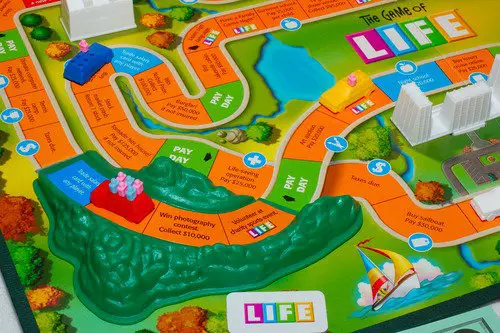
The Game of Life wasn’t always about college, careers, and winning big. In 1860, it was called The Checkered Game of Life and focused on moral lessons, with players navigating virtues like honesty and vices like gambling. Created by Milton Bradley, it reflected his own ideals about success and ethical living during a time when moral instruction was highly valued. In the 1960s, it was revamped into the modern version, focusing more on consumerism and the American Dream. The game’s shift mirrors the evolving priorities of society itself.
6. Go – A Timeless Battle of Wits
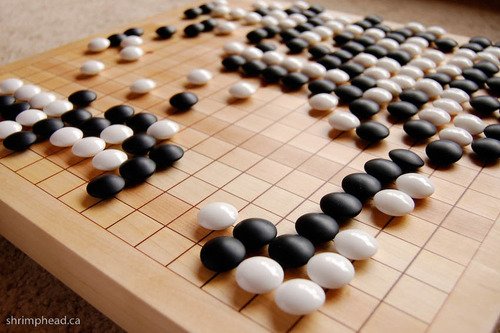
Go, an ancient game of strategy, originated in China over 4,000 years ago and is still played competitively today. Legend has it that an emperor used Go to teach his son discipline and mental clarity. The simple rules hide immense complexity, as players aim to capture territory on the board with black and white stones. Go became a cornerstone of Chinese culture and later spread to Japan and Korea, where it gained further popularity. Its enduring appeal lies in its blend of simplicity, strategy, and endless possibilities.
7. Checkers – Ancient Egypt’s Favorite Pastime
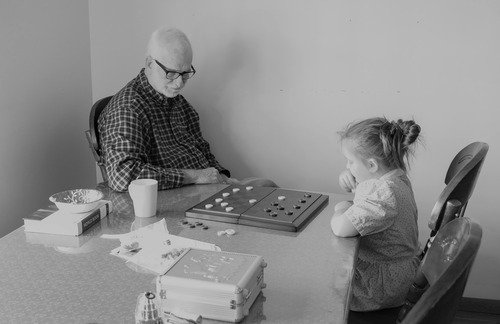
Checkers, or draughts as it’s known in some countries, has been played for thousands of years. Archaeologists discovered an early version in an Egyptian burial site dating back to 3,000 BCE. The game spread to Europe in the Middle Ages, where rules were adapted, and the board format evolved. Checkers might look simple compared to chess, but it requires keen tactical thinking. It’s amazing to think that something we play on rainy afternoons entertained pharaohs in the ancient world!
8. Risk – Born from a Map and Global Ambitions
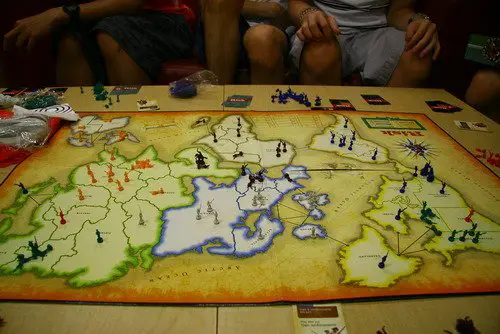
Risk was created in 1957 by French filmmaker Albert Lamorisse, and its original title was La Conquête du Monde (The Conquest of the World). It combined Lamorisse’s love of storytelling with strategic gameplay, allowing players to experience the thrill of global domination. The game’s mechanics were revolutionary for their time, introducing concepts like reinforcements and dice-based combat. After Parker Brothers acquired the rights, Risk became a hit worldwide. It’s fascinating that a board game managed to capture the essence of global ambition on a simple map.
9. Clue – Born from WWII Boredom
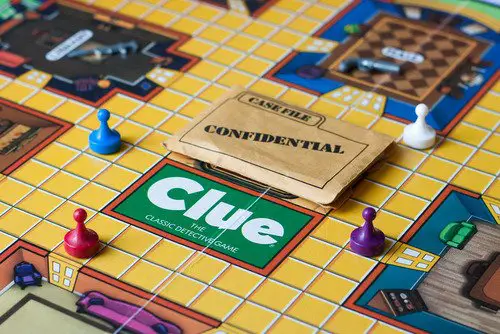
Clue, or Cluedo in its original British form, was invented during World War II by Anthony Pratt, a musician who wanted to recreate the intrigue of murder mystery parties. Wartime blackouts and curfews left people stuck indoors, and Pratt’s game provided the perfect distraction. It featured a colorful cast of suspects and a murder to solve, blending logic and deduction into a fun experience. Released in 1949, Clue became an instant classic, proving that a little imagination can turn wartime boredom into a worldwide phenomenon.
10. Candy Land – Designed to Comfort Sick Children
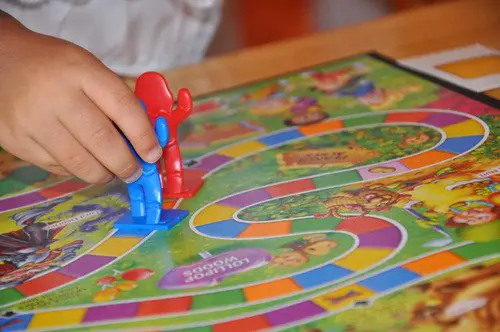
Candy Land, the sugary-sweet game beloved by kids, has surprisingly touching origins. In the 1940s, retired schoolteacher Eleanor Abbott created it while recovering from polio in a hospital. She designed the game to entertain children who were also battling the disease, giving them a colorful escape from hospital life. Candy Land’s simplicity and lack of strategy made it accessible to young kids and families. What began as a small act of kindness grew into one of the best-selling board games of all time.
11. Battleship – From Pencil and Paper to a Global Hit

Battleship didn’t start as a boxed board game but as a pencil-and-paper pastime during World War I. Players would sketch grids and “fire” at coordinates to sink their opponent’s fleet. The game grew in popularity over the years, and in 1967, Milton Bradley released the first plastic version. Its military theme reflected the global conflicts of the early 20th century, making it relatable and exciting for players. Today, electronic versions keep Battleship afloat, but the thrill of shouting, “You sunk my battleship!” never gets old.
12. Trivial Pursuit – Born From a Forgotten Fact
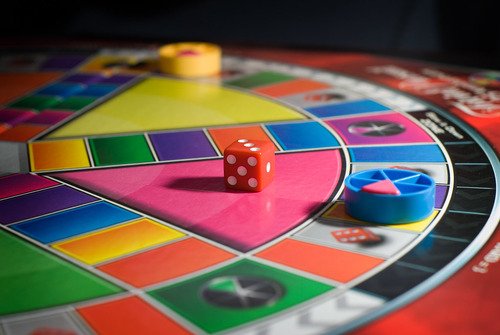
Trivial Pursuit was the brainchild of two Canadian journalists, Scott Abbott and Chris Haney, who invented the game in 1979 after realizing how much they loved random facts. Legend has it they came up with the idea while arguing over a forgotten piece of trivia. The duo spent years refining the game, which debuted in 1982 and became an overnight success. Trivial Pursuit proved that knowledge—no matter how obscure—could be both fun and competitive. It’s the ultimate reminder that curiosity pays off!


